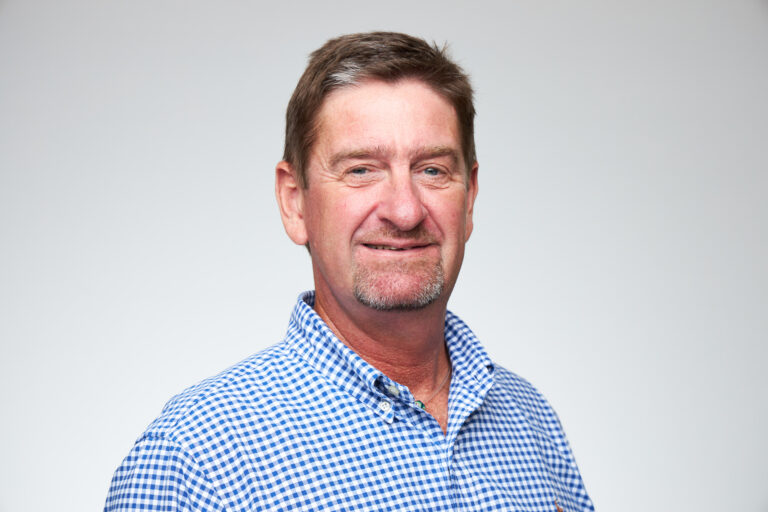Insurance is essential for any property owner living in Bermuda – particularly during hurricane season. We generally don’t get high casualty counts during hurricanes – we’ve learnt to weather them quite well over the years – but we do get plenty of damage.
Fortunately, we live in one of the most well-insured places on Earth. One of the island’s longest established domestic insurers is Argus, a company that has earned a local reputation as a giant.
Angus Crumley is the assistant vice-president of claims at Argus, and he spoke to us about why policyholders need not be too concerned about hurricane-related damage once the winds have dissipated and the bills start to mount.
“Argus Insurance Company Ltd (AICL) has a comprehensive Hurricane Plan that forms part of their Business Continuity Plan (BCP),” Mr Crumley said. “The overall Argus Group BCP includes individual plans from all departments and is reviewed and updated annually. Likewise, the Argus Hurricane Plan is updated prior to the start of the Atlantic hurricane season.
“This plan is mandatory for compliance purposes and includes special training for all AICL staff. Training sessions are conducted to refresh staff on their roles and responsibilities within the Hurricane Plan.
“Any new staff members are trained on how to enter claims and perform their duties as part of the plan. The Hurricane Plan itself is a living document, subject to annual updates and amendments, such as the shift from paper forms to electronic formats and incorporating a pandemic addendum.”
Planning is key for making it through any natural disaster, and knowing that Argus is so thoroughly prepared for what may come is comforting for its clients.
After a storm, clients will naturally be anxious, and claims will accrue quickly – but there’s no real formula for calculating how many claims will come, or how much damage will be done.
“The number of claims following hurricanes can vary significantly,” Mr Crumley said. “For example, Hurricane Fabian resulted in more claims for a single event than any other storm in recent times. The overall number of claims depends on factors like the storm’s path, its category, individual preparedness, and additional phenomena, like tornadoes.
“For instance, during Hurricanes Fay and Gonzalo, which struck within a week of each other, Argus inspected and categorised all reported damages from Fay before Gonzalo arrived. This proactive approach ensured clear differentiation between damages caused by each storm.”
Typically, Argus will assess damages as soon as it’s safe and practical to do so. This is a necessary process, and it is quite methodical and thorough.
“The process begins with local inspectors from Argus visiting as many properties as possible to photograph and list the damages,” Mr Crumley said. “This information is then handed over to overseas adjusters who handle the majority of claims.
“The adjusters will work from local contractors’ estimates, or request a quantity survey (essentially an estimate of the damages), and work with the policyholder to agree on the amount. The agreed amount is then transferred to the policyholder electronically. Claims are settled as soon as possible.”
The system is designed to be straightforward, efficient and fair. Argus knows that losing something to a hurricane can be traumatic, and does its best to make the claims process as easy as possible.
Every now and then, Bermuda experiences a “big one”. At those times, Argus is ready to deploy the full compliment of agents at their disposal to help get Bermuda back to some semblance of normalcy as quickly as humanly possible. Mr Crumley is proud of this special phenomenon.
“The contingency plan is embedded in the Hurricane Plan, which involves all staff from AICL, including those from departments like underwriting, operations, and accounts,” he said. “Depending on the severity of the storm, and the number of claims, additional adjusters from overseas are brought in.
“In past experiences, staff from other departments, such as health and pensions, have also volunteered to assist, making the process a collaborative effort across the company. You’d be amazed at how much everybody comes together to be a part of it. They’re all always eager to get stuck in and help out where they can. We love that.”
There’s a certain satisfaction in knowing your company stands at the forefront of restoring peace and alleviating trauma after a natural disaster. Mr Crumley speaks with passion about times when Argus performed well after a storm.
“Notable examples include Hurricane Fabian, which resulted in a significant number of claims,” Mr Crumley said. “Another instance is Hurricanes Fay and Gonzalo, which hit within a week of each other. Argus managed to inspect and document all damages from Fay before Gonzalo arrived, ensuring clear differentiation between damages caused by each storm.
“Additionally, during Hurricanes Fiona and Earl, a similar approach was taken to categorise and address damages efficiently.”
Mr Crumley emphasises the importance of personal safety and offered advice to clients putting their claims together once the storm is over.
“Policyholders are advised to prioritise their safety first and foremost,” Mr Crumley said. “They should take photographs of the damaged property, remove undamaged property if it is safe to do so, and take immediate remedial actions to mitigate further loss or damage.
“It is crucial to retain receipts for any expenses incurred during this process. A loss inspector will contact the policyholder as soon as possible to proceed with the claim.
“Additionally, it is important for policyholders to regularly review and understand their insurance policies to ensure they have the right level of replacement cover. By validating that their coverage is adequate, policyholders can reduce their risk to property damage and personal financial exposure. This ensures that policyholders are better prepared in the event of a hurricane.
“Making sure your policy is up to date and understanding the extent of your coverage are critical steps in safeguarding your property and finances.”

